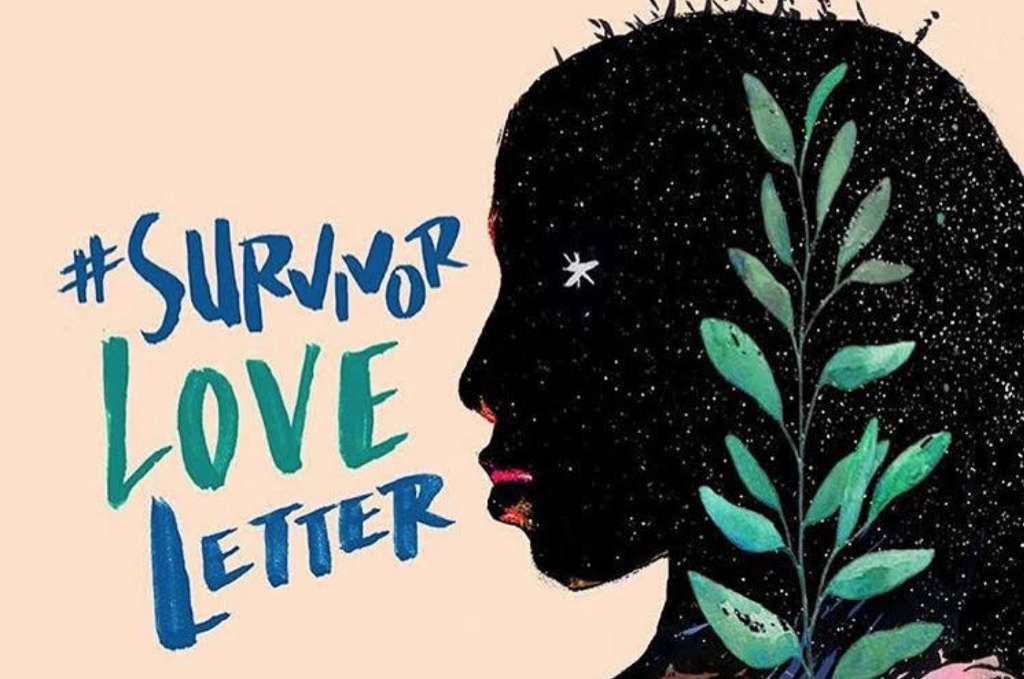
‘Healing from abuse has taught me to believe in magic. How else would we be able to alchemize violence into a loving vision of hope?’
Content warning: sexual violence
When #MeToo started, I found that I didn’t have much to say. While I was relieved to see at least a few powerful men and known abusers removed from their positions of power, I also knew how many more were out there, how so very many of us had been hurt, are continuing to be hurt.
As the campaign wore on, I found myself increasingly worn down. Day after day the news and social media were streams of horror; I couldn’t escape stories of sexual harassment and assault, of rape, of ruined careers and devastation and injustice and loss.
There are so many of us who’ve suffered, and yet #MeToo has already veered away from us; now there is the inevitable backlash and cries of “has it gone too far!?”; there are calls for “due process,” the world essentially shrieking at us, “but what about the men!?”
Due Process Is Needed For Sexual Harassment Accusations — But For Whom?
Some days it feels like those of us who’ve survived violations and violence of the most intimate kind are barely present in this movement at all.
But that changes today.

Back for its fourth year, #SurvivorLoveLetter, the brainchild of filmmaker and media justice activist Tani Ikeda, is here to flood the internet with love for survivors.
Per the #SurvivorLoveLetter Tumblr, the campaign is: “A call to survivors of sexual violence and our loved ones to publicly celebrate our lives. By telling our stories we seek to build knowledge and reflect on the ways we heal ourselves and our communities.”

“By telling our stories we seek to build knowledge and reflect on the ways we heal ourselves and our communities.”

“When we live in a culture of violence, one of the most radical things we can do is love ourselves,” Ikeda adds.
“That love is what will make it impossible to stop fighting for each other — to make it impossible to give up on ourselves.”

Four years ago, Ikeda had a breakthrough moment in her journal:
“A few days before Valentine’s Day — the anniversary of my rape — I thought about all the times I had wanted to end my life. But this time, I decided to write myself a love letter. This radical act of self-love was the start of a letter-writing project called Survivor Love Letter.
I wrote in my journal: ‘After surviving my rape, I spent 10 more years surviving chronic depression and a perpetual feeling that I had to continue to fight for my life. This is my survivor love letter. Don’t give up on your own happiness.’”
Then she decided to spread the campaign:
“I reached out to women of color activists such as Suey Park, Lisa Factora-Borchers, Patrisse Cullors as well as friends who were healing from abuse and in doing so, envisioning a world free of violence. Valentine’s Day kicked off #SurvivorLoveLetter, and we flooded the internet with love for survivors on Twitter and Tumblr.”

To participate this year, write a declaration of self love or honor a survivor in your life using the hashtag #SurvivorLoveLetter.
“Survivor Love Letter is a declaration of self-love and a call to allies to honor the survivors in our lives. I imagined what it would have meant for my younger self to wake up on Valentine’s Day and read message after message of public support for surviving,” Ikeda said.
Today, instead of the triggering torrent of trauma and abuse online, we push back and make space to love ourselves and our survivor siblings. Today we stand together, and reacquaint ourselves with our own strength and ability to hope.

Today, instead of the triggering torrent of trauma and abuse online, we push back and make space to love ourselves and our survivor siblings.

As Ikeda says, “Healing from abuse has taught me to believe in magic. How else would we be able to alchemize violence into a loving vision of hope?”
Healing doesn’t look the way I thought it would. I used to feel that my chronic pain was an example of how I had failed to get better. I am starting to embrace the more complex narrative of my healing. It’s not linear. It’s not graceful. Healing does not mean fixing who I have become.
Survivor Love Letter enables us to talk about what survivorship really looks like. Through this growing collection of love letters, maybe we can build strategies for the ways we heal ourselves and our communities. I hope sharing our real stories makes other people feel that there is no one right way to heal.

